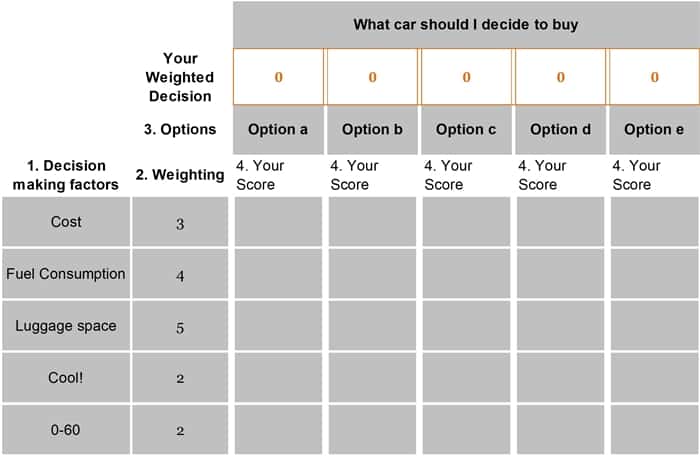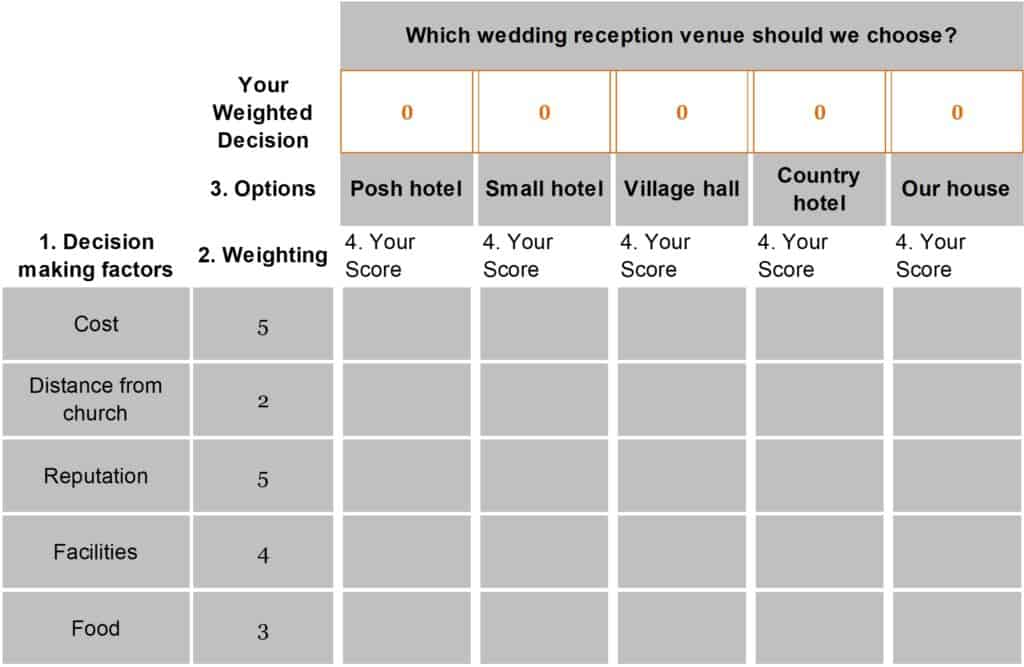Having Too Many Choices Leads To Bad Decisions

Enjoy this guest post, then have a read of our ultimate guide to the weighted decision matrix.
Lots of choice is good, isn’t it? Well a new study suggests that may not be the case at all. The University of Warwick and the University of Lugano teamed up to research decision making whilst partaking in a gambling experiment. 64 people taking part where asked to choose a box on a screen in front of them. Each box had a monetary value and non-disclosed odds on paying out the cash inside (sounds like the popular TV program Deal or No Deal so far). The boxes had to be turned over a number of times in order for the participants to guess the odds or the liklihood of a payout. Open the box 10 times and get paid out once would lead to a deduction of odds of 1:10. The boxes could be opened as many times as the participants liked but in the end they had to make a final choice as to which box to open.
One group got five turns, where the number of boxes to choose from went up each turn. There were two boxes to decide between at first, then four, eight, 16, and 32. Another group did this in reverse with the number of boxes decreasing from the maximum of 32 down to 2 again over 5 turns. Interestingly, the group with more boxes did more sampling or testing of the odds but not in proportion. For example they 14 samples for two boxes, but 55 samples for 32 boxes.
The group with the largest number of boxes were looking for the boxes with the biggest payouts but didn’t test enough to get a feel for the odds. More choice led to less research and less chance of winning. Poor decision making.
The people with the smaller amount of boxes got more information by testing the odds more and stayed true to this technique as the number of boxes increased.
The universities have dubbed this “search-amplified risk” or in other words, the more choices put in front of an individual, the more they overestimate their chance of a massive payout. The moral of the story from our point of view – don’t gamble!


